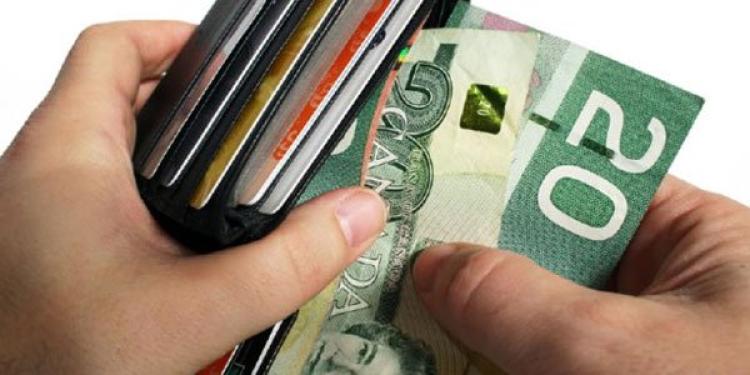British Columbia Cities Boosted By Gambling Revenues Coming From Local Casinos
Posted: March 7, 2014
Updated: October 4, 2017

River Rock Casino is a great source of gambling revenue for the British Columbia city of Richmond.
British Columbia cities collect big from the local casinos operating under Canadian gambling laws. The regulations stipulate that local governments are entitled to a 10 percent share of all gambling revenues from gambling centers and casinos operating within the boundaries of their cities.
City of Richmond
River Rock Casino alone has provided Richmond with a very unexpected $5 million share. River Rock remains British Columbia’s top destination for gambling and entertainment. Naturally, the casino also boasts the biggest revenues in the business, and it’s the biggest contributor to local municipalities.
River Rock Casino supplies the city of Richmond with revenue
• Canadian gambling laws stipulate a 10% share of casino revenues for local cities
• Richmond has got $5 million more than expected last year
• The money is being put to good cause and development
The city of Richmond had budgeted to get some share of the gambling revenue, but it was estimated at $12.4 for last year. Instead, the British Columbia city got $17.6 million, which is a 13 percent increase on the 2012 figure.
Starting from 1999 Richmond has gained a total of $136.7 million in gambling taxes. This is more than any other payout from large casinos in Vancouver Metro area. All of the other top casino performers including Edgewater Casino in Vancouver, Grand Villa Casino in Burnaby, and formerly Boulevard Casino – now Hard Rock Casino Vancouver, didn’t even come close to what River Rock has contributed.
Chief Financial Officer for Great Canadian Gaming, Kiran Rao, had the following comments about River Rock Casino for Canadian gambling news: “It’s always been a strong performer, a flagship for us.”
How does Richmond spend gambling revenues
The city of Richmond cannot be happier about the increase in gambling revenues, but the local government is very conservative about spending the fund. Most of the revenue is allocated for capital projects, community grants and additional policing. One of the latest examples is paying off the Richmond Oval – the Olympic multi-sports arena, a brand new aquatic center, and a retirement home.
However, if there’s any money left from the unexpected gambling revenues, it will be stowed away in a special reserve fund. According to Ted Townsend, the local government’s spokesman, the fund will not be utilized for operating expenses, especially in these uncertain economic times. Looking back at 2012, Richmond had $7.6 million in the surplus fund at the end of the year.
Townsend commented: “We’re very conservative in our budget. We don’t know (how much money is coming) until we get the cheque from the province. Obviously, this ($17.6 million) is up significantly from previous years. It’s a good news story for the community in that we will be able to put it to good use.”
Other British Columbia cities
Richard Stewart, Mayor of Coquitlam, has named the incredible Richmond gambling payout a “remarkable number”. Of course, he won’t have any objections if his city would get a similar figure. This would be especially useful following the $15 million spent on converting Boulevard Casino into the Hard Rock Casino Vancouver.
As for the figures, Coquitlam gets roughly $8 million from casinos on an annual basis. So far the city has spent it on building a sports center, a library, and a brand new soccer tournament facility. Steward commented about the funds allocation: “Those are the kinds of benefits the community and sub-region get out of the casino. We’re certainly wanting to do good work with the money we get.”
Steward was optimistic about the newly rebranded casino, saying it will help the city to become one of the premier tourist destinations for Vancouver Metro area and Okanagan. The Mayor said: “I want our casino to draw from elsewhere and be part of our tourism strategy. You do that by being different.”
More expectations about the Hard Rock Casino Vancouver
Chuck Keeling, Vice President of the Great Canadian Gambling, joined Kiran Rao saying everyone is expecting the Hard Rock Casino Vancouver to do well. The old casino – Boulevard – was a top-notch destination, but failed to overcome difficulties it faced. There have been traffic disruptions due to Port Mann Bridge and Highway 1 widening, as well as increased costs of redevelopment of the casino property itself.
The brand new casino is expected to become a “smaller version of River Rock,” according to Keeling. It will definitely offer more tables, entertainment facilities, hospitality and meeting spaces than Boulevard ever did.
Speaking about the rebranding and renovation Keeling opined: “It was a $15-million capital spend, and there are very high expectations this will create momentum to rebuild that property. We will work off our experience with the River Rock brand.” On the other hand, the official knows it may take some time before Hard Rock Casino reaches the same success the River Rock enjoys in Richmond.
Praising River Rock Casino
Chuck Keeling attributed the success of River Rock Casino to eight different periods in the last 10 years. The phases he outlined included Canada Line introduction in 2009, allowing tourists from Waterfront Station to reach Richmond and River Rock in under 20 minutes. He also mentioned an increased focus on entertainment as another important factor in River Rock’s success.
The Great Canadian has very similar hopes for the Hard Rock Casino Vancouver, but Keeling mentioned that the corporation is being cautious. He said they have freezed plans for additional facilities and a hotel until the casino shows it can produce revenues.












